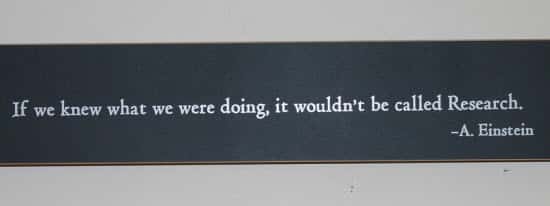(Source: Flickr)
IN this post we look at researching consulting firms.
Why, how and what should you research?
Below we provide some ideas to help make your research as effective and efficient as possible.
1. Why should you research?
Take control of your career. Researching consulting firms doesn’t just help you prepare your application and improve your interview performance, it will also help you decide whether you are really interested in pursuing a career in the consulting industry.
The objective is to get a job offer. This point sounds obvious, however it can be easy to take your eyes off the prize.
Researching consulting firms will help you figure out which firms suit your personality and career goals and will significantly improve your interview performance.
It is important to show a genuine interest. Being knowledgeable about the consulting industry and the firm for which you are applying is an easy way to demonstrate that you have a genuine interest in the consulting industry.
It is important to remember that, regardless of your university grades, the firm will need to spend a lot of money training you. A consulting firm does not want to hire people who are not keen to be there.
Keep the stress levels down. Being well informed can help to lower your stress levels. For example, if you have done your homework, questions like “Why do you want to work here?” and “What is it about our firm that interests you?” should not faze you in the slightest.
2. How should you research?
Talk to people. The best source of information about a consulting firm is from people who have had direct contact with the firm. Talk with current and former employees, friends who have gone through the interview process or the firm’s HR personnel.
Read the firm website. Every candidate will read the firm website, and so this is necessary but by no means sufficient. The amount of information that a firm provides on its website will vary but this will at least be a good starting point.
Read widely. The more you know about the economy, different industry sectors and the management consulting industry, the better.
3. What should you research?
Know the company basics. Having an understanding of the firm to which you are applying will demonstrate your knowledge, professionalism and interest in the consulting industry. Basic information that you should know includes:
- The firm’s background,
- Services and industry sectors,
- Key office locations,
- Recent media mentions, and
- Key factors that distinguish the firm from its competitors.
When researching consulting firms, ask yourself questions such as:
- What services does the firm offer?
- Which industry sectors does the firm serve?
- How many employees does the firm have? How many offices?
- Does the firm offer a formal training program?
- How much partner contact and client contact can junior consultants expect?
- What are the typical working hours? What is the firm’s travel model? Is it possible to transfer between offices?
- At what level of experience are consultants required to specialize by service and industry sector?
- How are consultants reviewed? Does the firm have an “up or out” policy?
- How many positions is the firm looking to fill? How does that compare with previous intakes?
- What exit opportunities do the firm’s consultants typically pursue?
Understand how the firm interviews. In addition to learning about the firm, you should also find out about its interview process. What qualities are they looking for in applicants? How many interview rounds are there? Do they ask case questions? Does the firm put an emphasis on asking questions with a numerical component?
[For more information on consulting interviews, please download “The HUB’s Guide to Consulting Interviews“.]
